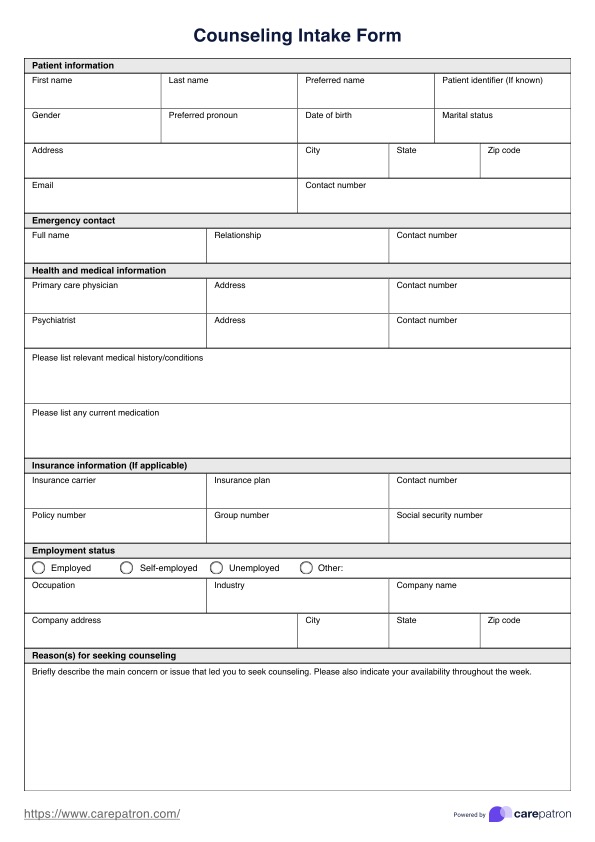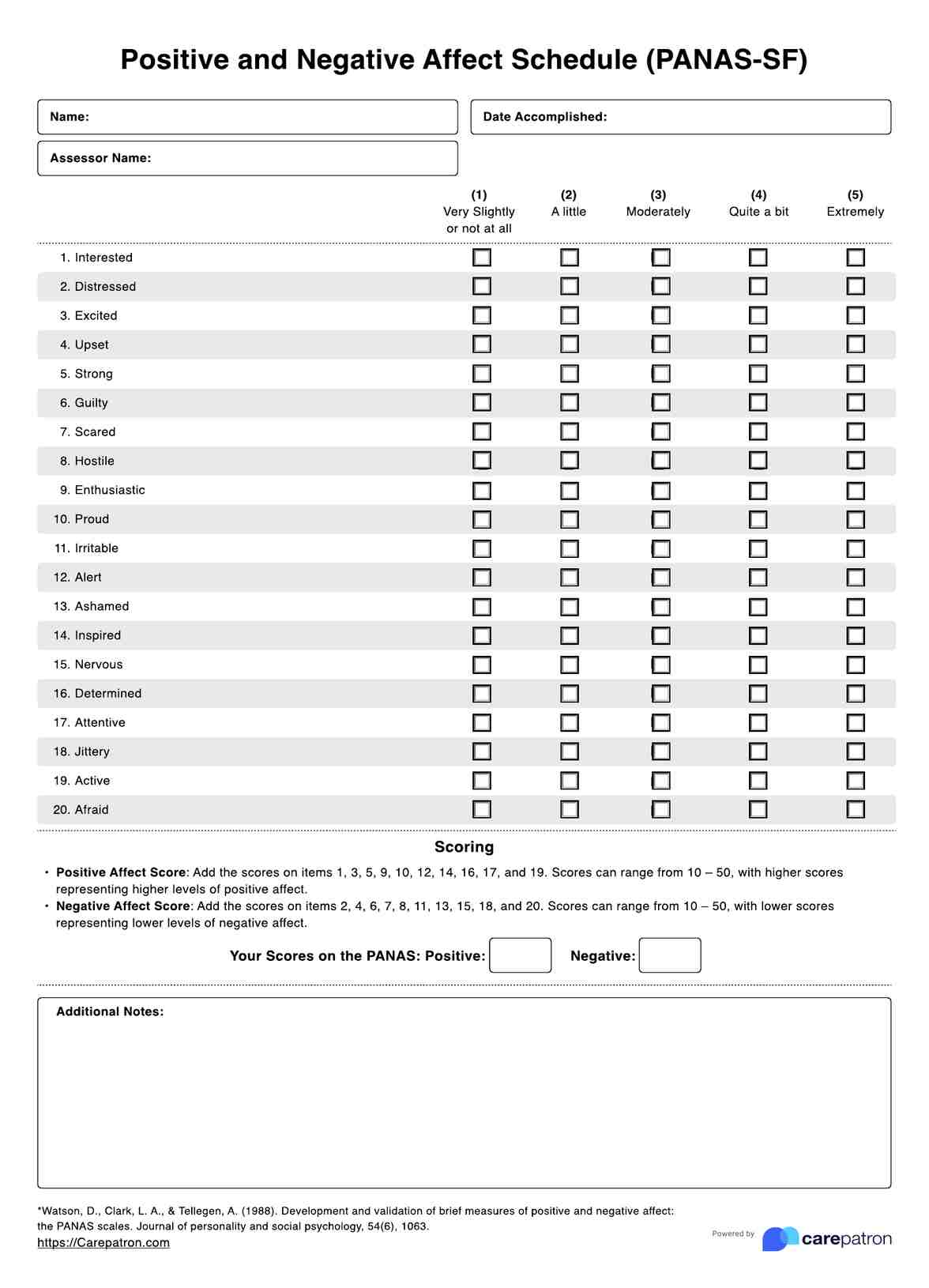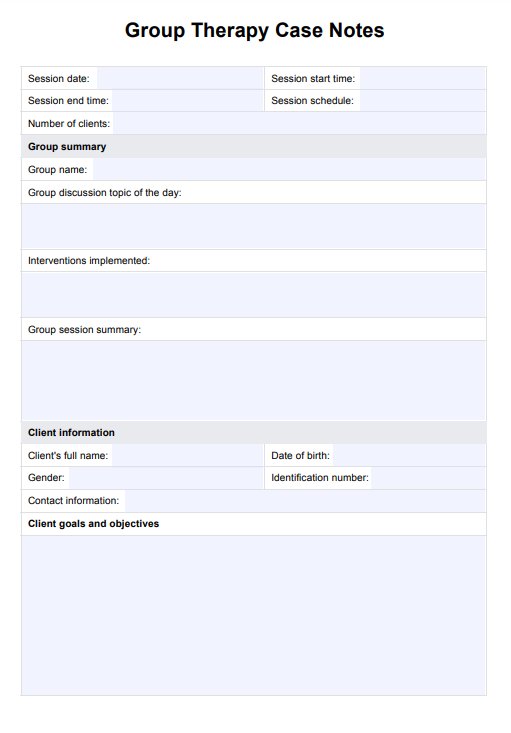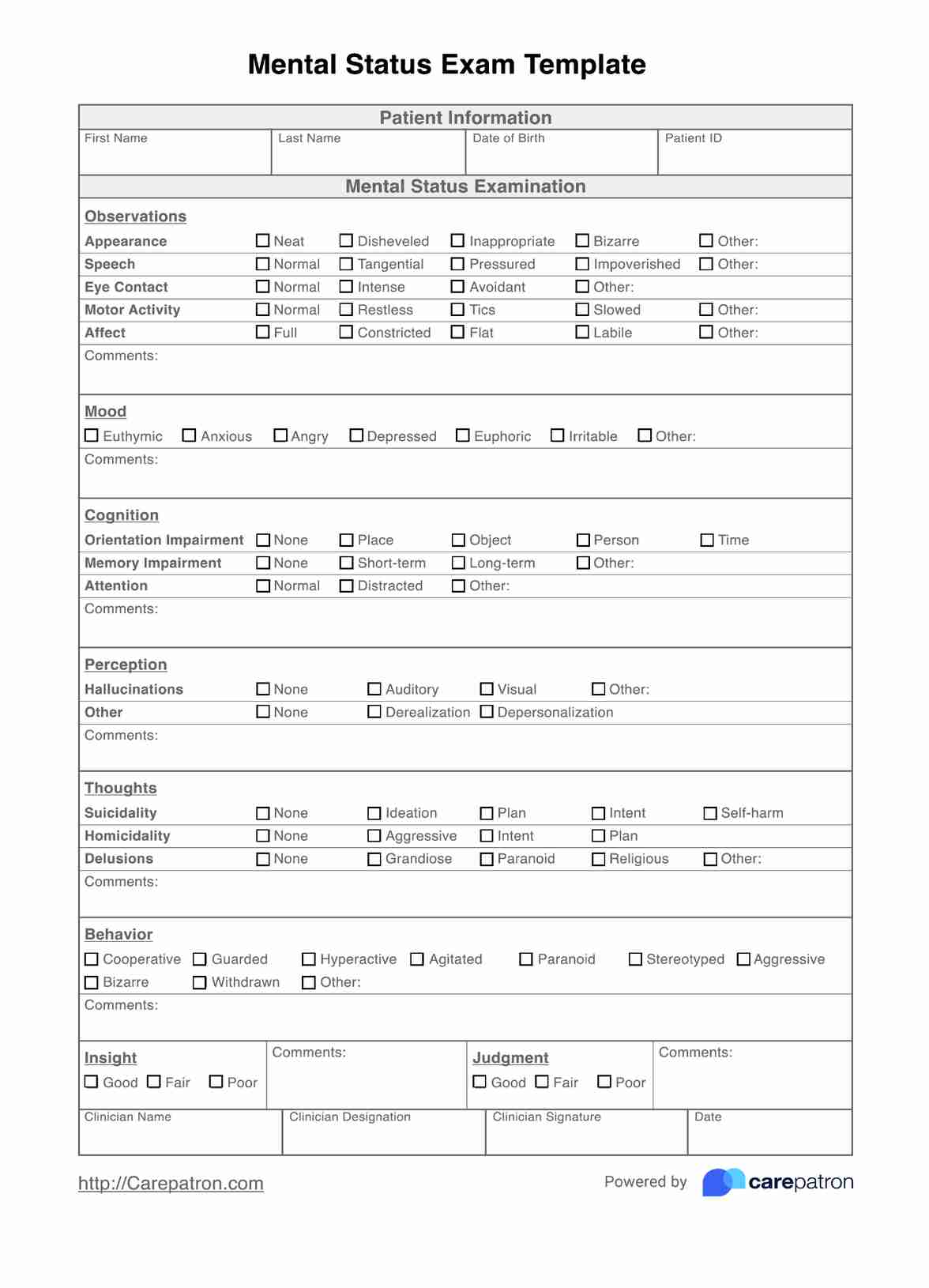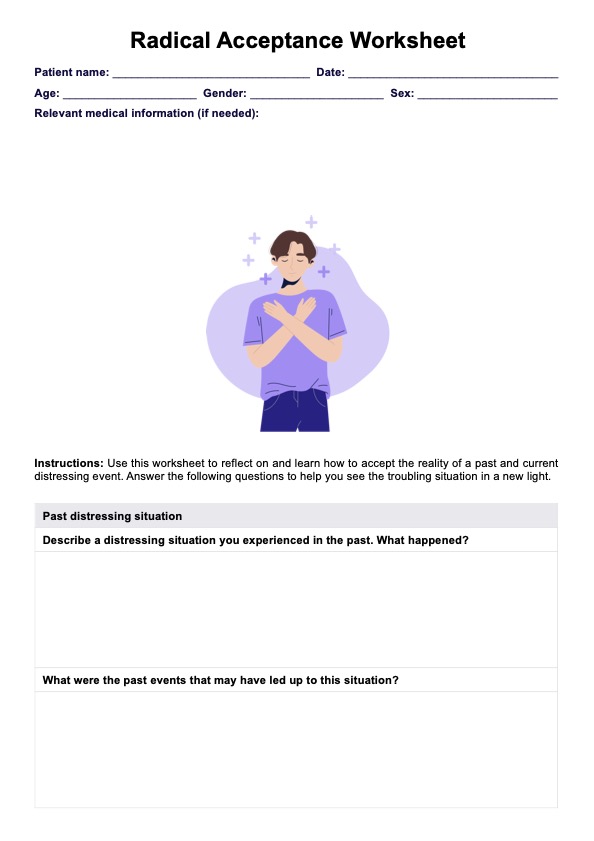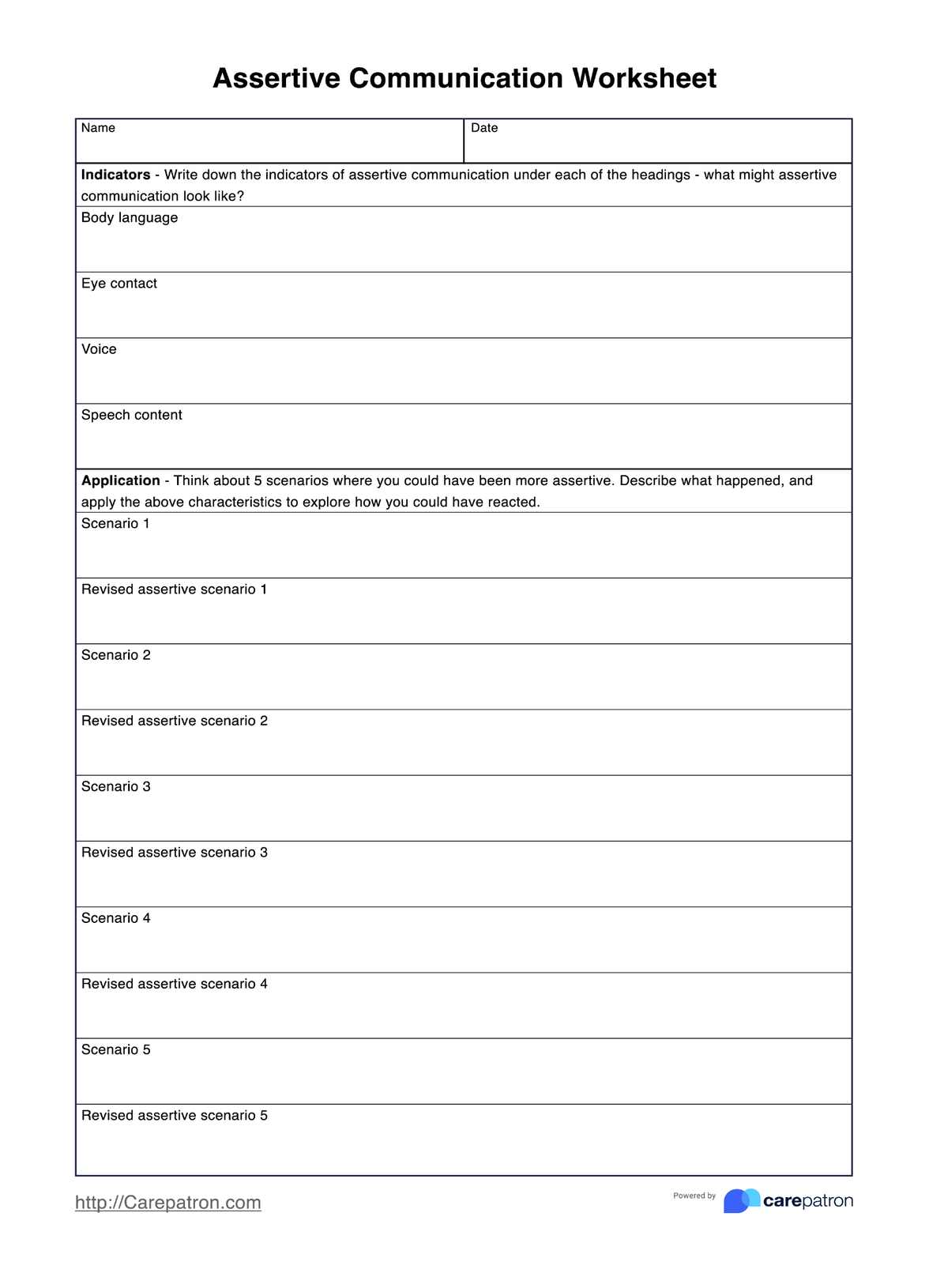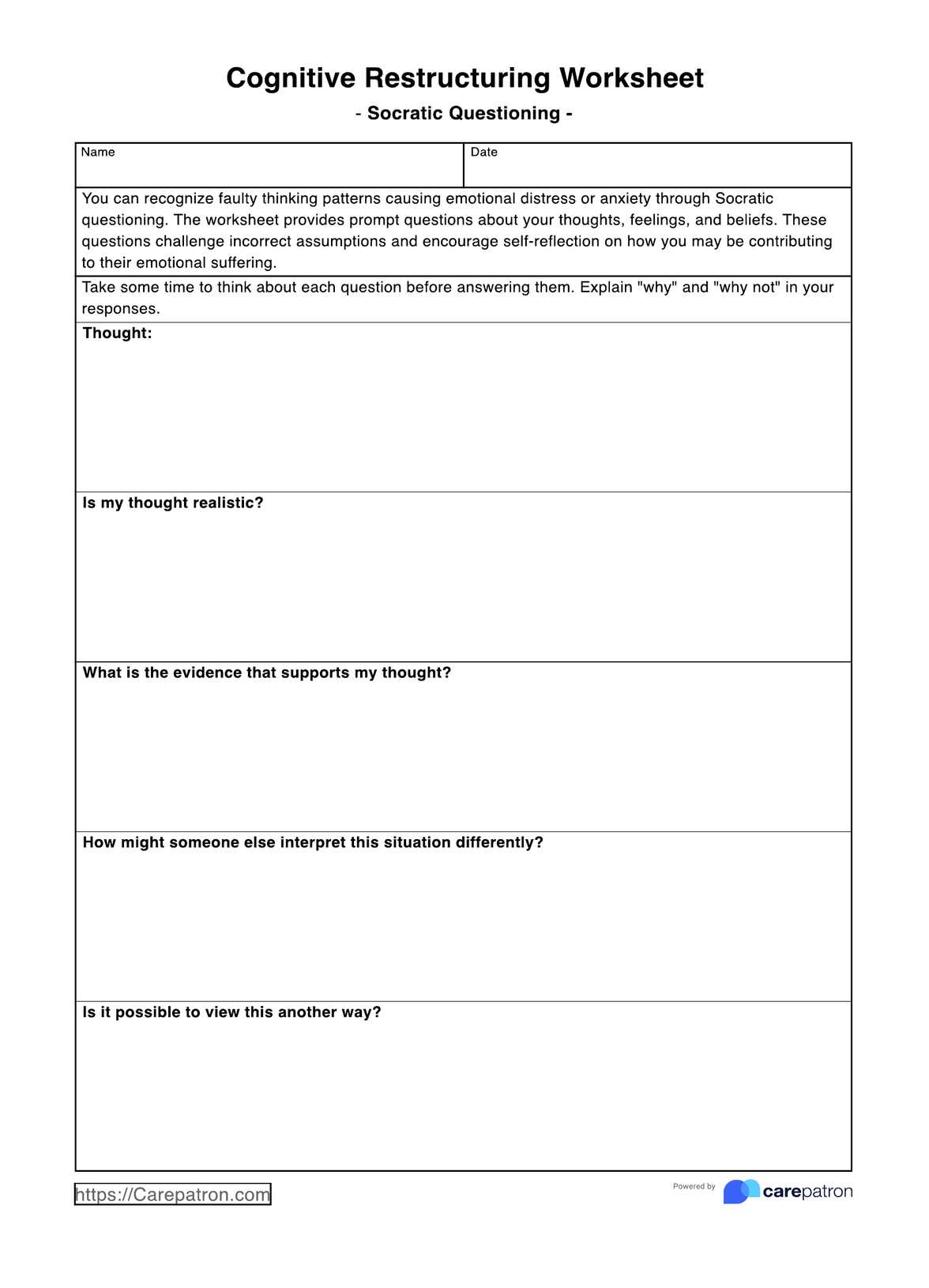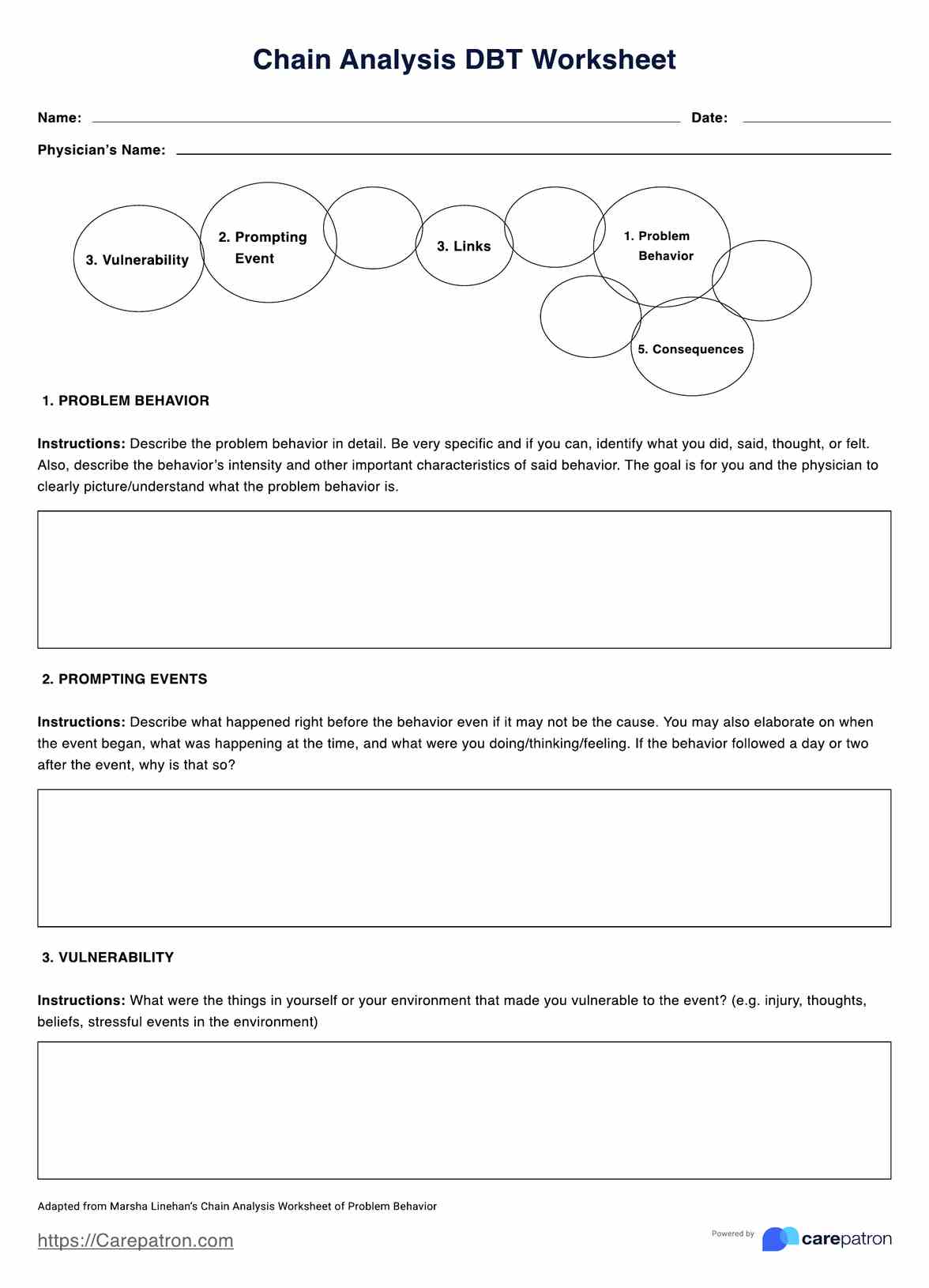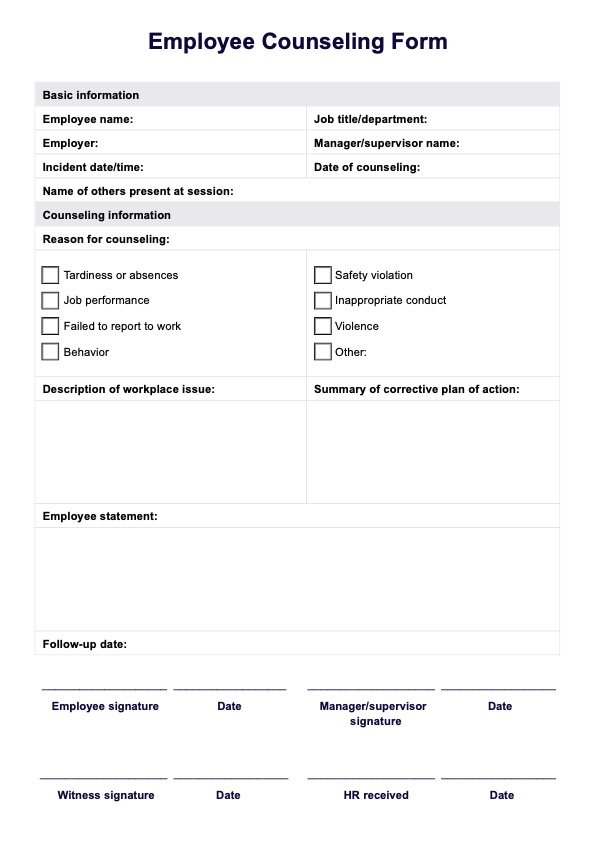Motivational Interviewing Worksheet
Help your clients overcome their struggles with substance abuse, addiction, or other behavior harming their well-being by developing your motivational interviewing skills using our Motivational Interviewing worksheet.


What Is A Motivational Interviewing Worksheet?
It can be frustrating to have a patient come to you with issues that seem entirely changeable. Whether this is substance abuse, addiction, or poor lifestyle choices regarding exercise or nutrition, you may feel as though the solution to their problems is a simple matter of them making the decision to change. However, for many, it is not so simple. As a practitioner, you are in a unique position of being able to help through the specialized conversational technique of motivational interviewing.
Motivational interviewing is a conversational technique for practitioners to encourage clients to change behaviors that are not in their best interests. This can be any changeable aspect of the client’s life that is negatively impacting their well-being, which could include, but is not limited to, substance abuse, addiction, violence, overeating, physical inactivity, or smoking cessation.
For early career practitioners, or those unfamiliar with motivational interviewing techniques, we have created a dedicated to break down each part of the motivational interview. This worksheet is a simple tool for you to use in your sessions with clients to help to structure the conversation according to motivational interview principles, and ultimately, motivate your clients to start making positive changes in their own lives.
Motivational Interviewing Worksheet Template
Motivational Interviewing Worksheet Example
How To Use This Motivational Interviewing Worksheet
The sections of this worksheet are designed to reinforce the four skills involved in motivational interviewing. These are:
- Asking Open-ended questions to encourage your patient to share their struggles with you in their own words
- Affirming your client’s perspective through positive statements and empathetic encouragement.
- Reflective Questioning, or rephrasing your client’s statements as reflective questions to get to the heart of their issues.
- Summarizing key factors of your client’s struggles.
These skills are often referred to using the acronym OARS.
To start using this motivational interviewing worksheet and incorporating the OARS skills into sessions with your clients, just follow the simple step-by-step guide we have provided below.
Step One. Download the PDF worksheet
The first step is to get a copy of the worksheet. You can download the PDF version of this worksheet from the link on this page, and if you prefer, you can continue to print out this resource and fill it in by hand.
Step Two. Fill in your patient’s details
Once you have a copy of the worksheet, proceed to fill in your client’s details at the top of the page so you don’t get the worksheet mixed up with another client.
Step Three. Complete the OARS sections
Now for the main event. Either concurrently with your motivational interview, or shortly after, fill out each of the four OARS sections in any order that works for you. You could even write down some open-ended questions prior to the motivational interviewing session using this worksheet if you want to be extra prepared.
Step Four. Store securely
The last step is to store the document securely in your client’s record.
Who Can Use this Printable Motivational Interviewing Worksheets (PDF)?
Despite being a motivational interviewing worksheet, this resource is not designed to be a client hand-out and should be completed by a practitioner following or in conversation with their client. There are many different practitioners who may benefit from incorporating motivational interviewing into their practice. These include:
- Therapists and Psychotherapists
- Clinical Psychologists
- Counselors and coaches
- Addiction counselors
- Primary care physicians
- Nurses and mental health nurses
Additionally, this worksheet is particularly suited to those in the early stages of any of the above careers or students/trainees who want to gain confidence with the skills required for motivational interviewing.
Why Is This Form Useful For Therapists
This worksheet serves as a tool to help therapists ensure they are employing the four key skills of motivational interviewing; open-ended questions, affirmations, reflective listening, and summarizing.
These sections can be filled out in any order, and relevant information can be added either during the session or shortly after. This can be done either by hand or digitally using the interactive PDF textboxes.
Alternatively, this form can help a therapist to plan prior to a session by jotting down potential open-ended questions or affirmations prior to their client’s arrival.
.png)
Benefits of Motivational Interviewing Worksheet Template
Training Tool
This motivational interviewing worksheet is a great tool for those practitioners still developing the skills required. Using a worksheet to guide your motivational interview session will help you to build confidence.
Standardize your Motivational Interviews
Your line of work may involve seeing many clients who could benefit from motivational interviewing techniques. As such, developing your OARS skills can help to ensure all your clients are getting the same considered treatment.
Provide evidence for third-parties
A completed motivational interview worksheet can serve as great evidence for proof of clinical hours completed, or for providing to third parties such as insurance providers or employers of your client. Additionally, proof of your motivational interview strategy may serve as useful evidence of your clinical competence should any legal situations arise.
Track your Client’s Progress
By completing a motivational interviewing worksheet for your client several times over the course of their time with you, you can track the progression of their feelings and responses over time. This can inform your treatment decisions for your client, and ultimately, improve their treatment outcomes.
Save Time Formatting
Finally, save time writing up headings or titles for your notes or worksheets with our pre-formatted worksheet. We have included space for your client’s name, date, motivational interview sections, and space for your name to ensure you don’t forget any of these important details.
Commonly asked questions
Motivational interviewing worksheets can be a useful tool for taking notes during or shortly after a client’s session with you. This is to ensure you recall the motivational interview techniques you used with your client, and don’t forget any details.
Open-ended questions are questions that cannot be answered with “Yes” or “No”, or a simple one-word answer. These questions might start with “tell me about…”, “how”, or “why”. The goal of open-ended questions is to get your client to tell their story in their words and share their own perspective.
Motivational interviewing is a technique best employed for clients demonstrating low motivation to change their behavior, low confidence in their ability to enact change, ambivalence towards making a change, and who place a low importance on the need for them to make a change. Motivational interviewing will likely be unnecessary for clients with high motivation and belief in their ability to change, and similarly for clients with absolutely no interest in enacting a change.


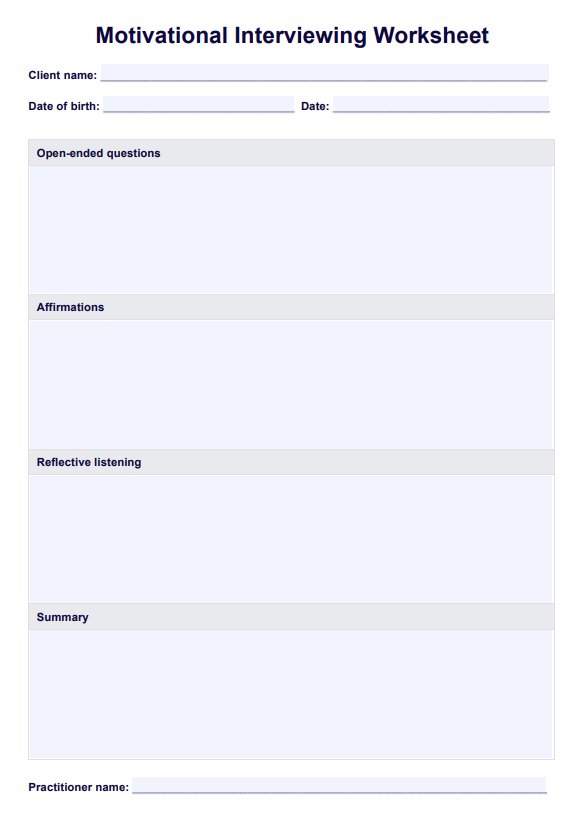
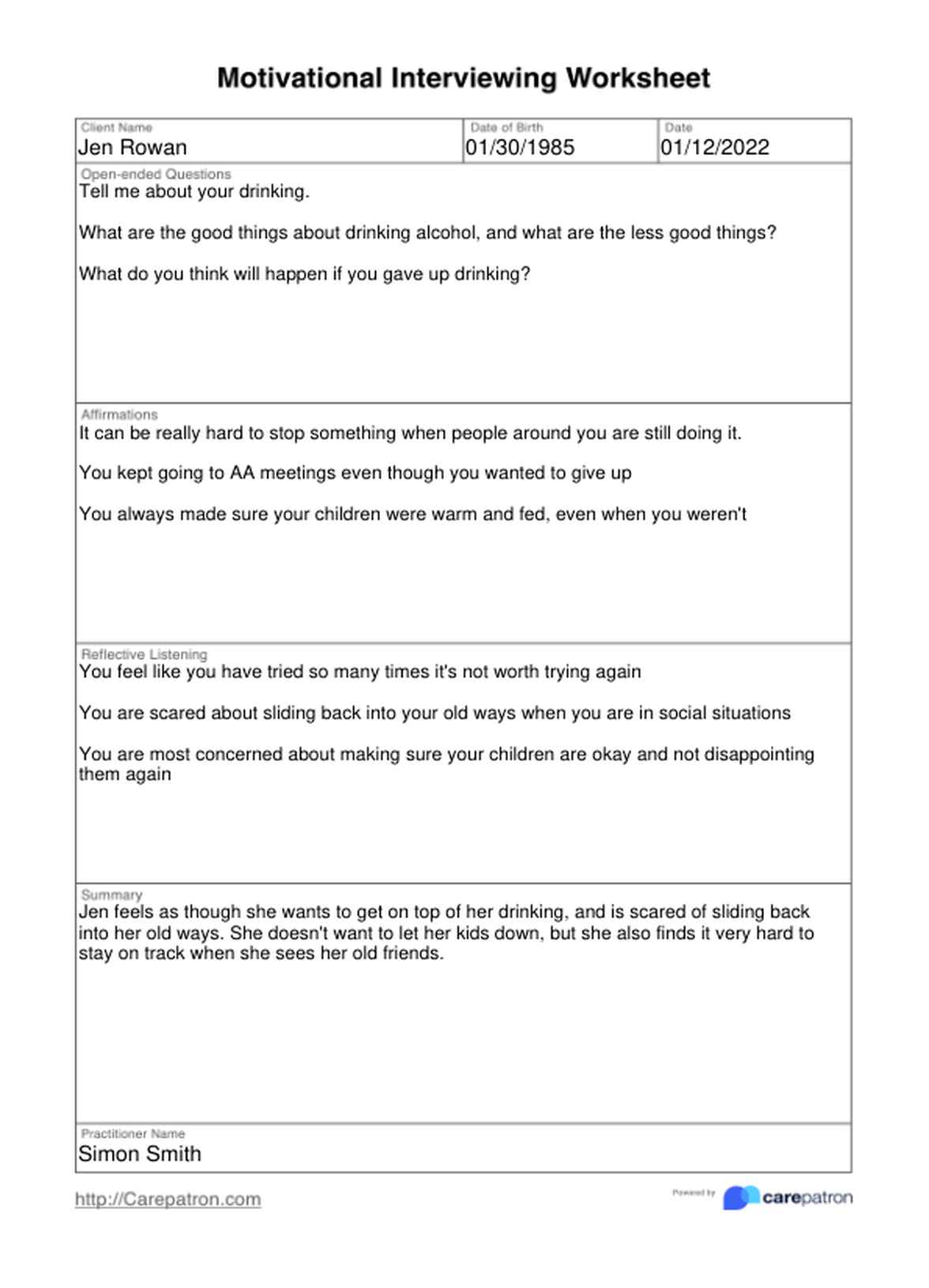

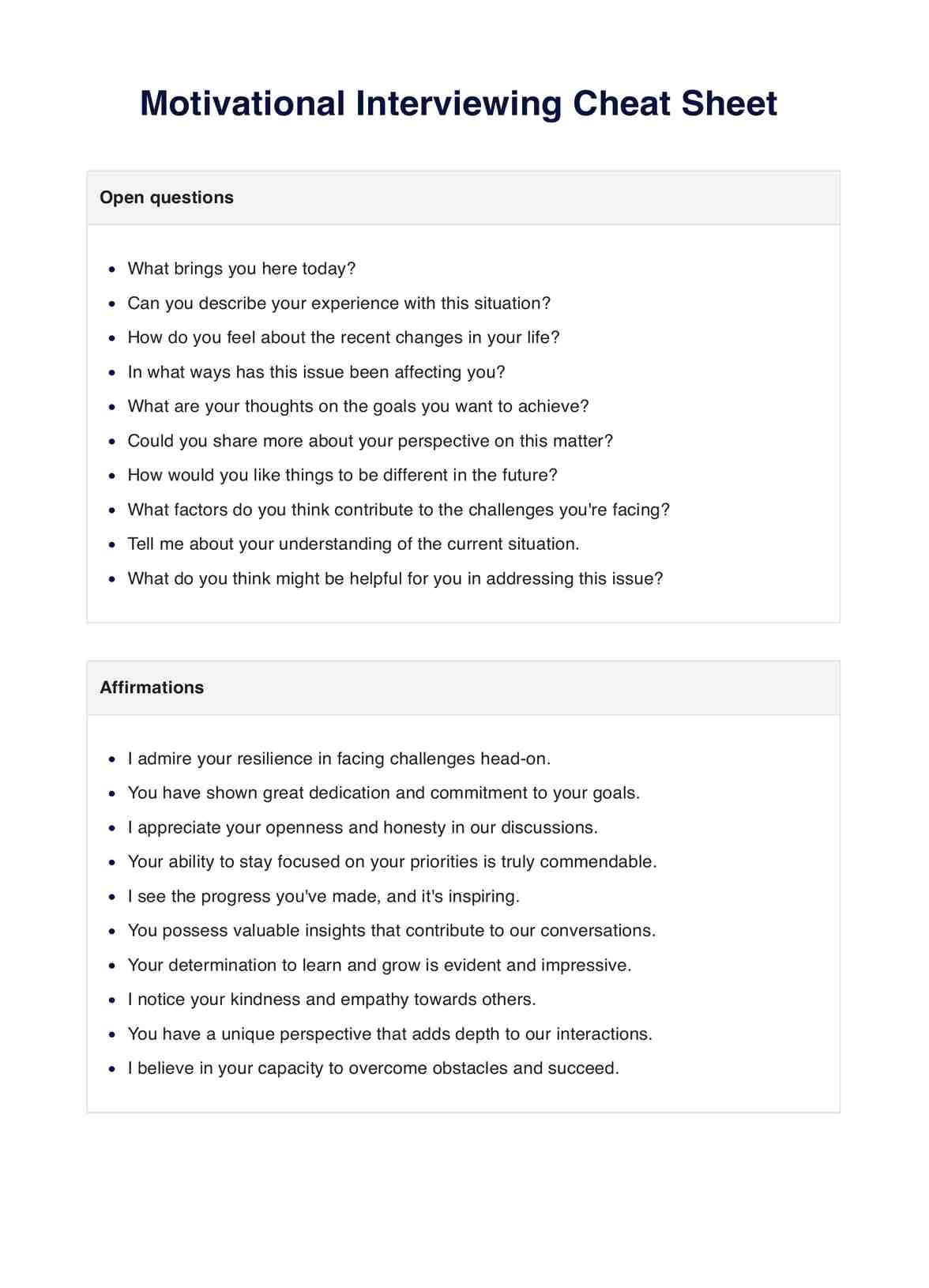
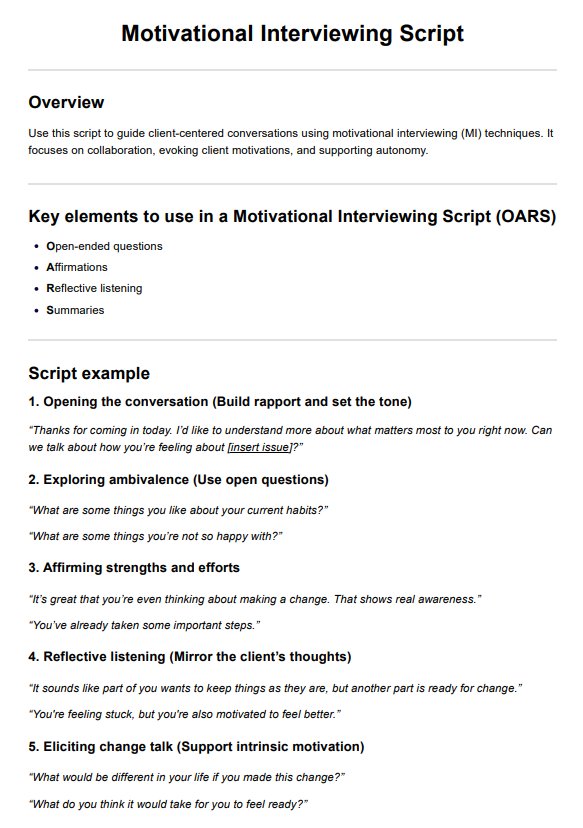














-template.jpg)





















































































